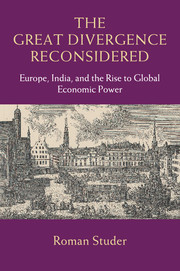Book contents
- Frontmatter
- Dedication
- Contents
- Figures
- Tables
- Acknowledgments
- 1 Introduction
- Part I The big picture
- Part II Differentiations and extensions
- Part III Synthesis and interpretation
- Appendices
- Appendix A Data used in Chapter 3
- Appendix B Data used in Chapter 5
- Appendix C Data used in Chapter 6
- Appendix D Error correction model used in Chapter 3
- Appendix E Error correction model used in Chapter 5
- Bibliography
- Index
Appendix C - Data used in Chapter 6
Published online by Cambridge University Press: 05 February 2015
- Frontmatter
- Dedication
- Contents
- Figures
- Tables
- Acknowledgments
- 1 Introduction
- Part I The big picture
- Part II Differentiations and extensions
- Part III Synthesis and interpretation
- Appendices
- Appendix A Data used in Chapter 3
- Appendix B Data used in Chapter 5
- Appendix C Data used in Chapter 6
- Appendix D Error correction model used in Chapter 3
- Appendix E Error correction model used in Chapter 5
- Bibliography
- Index
Summary
GDP per capita was calculated by dividing the total GDP in Europe and India by total population in both territories. Note that for “Europe,” thirty-six countries in Western, Mediterranean, and Eastern Europe have been included. Not included are all former USSR territories and former Yugoslavian territories. “India” includes Pakistan and Bangladesh. All GDP and population data comes from Maddison, Historical Statistics for the World Economy, available at www.ggdc.net/maddison/ Historical_Statistics/horizontal-file_03–2007.xls
Sources and description of real wage data
India
Nominal wage data
All the wage data has been converted into grams of silver per day. 1 rupee was worth 10.78 grams of pure silver. In the few instances when the sources reported wages per month, they were divided by 30 to obtain daily wages. All in all, 391 nominal wage quotations for unskilled (or semi-skilled) laborer the entire period 1600–1900 could be gathered. The wages are for laborers, agricultural laborers, spinners, and weavers. Geographically, the data is slightly biased toward the east and the south, while there are more wage figures available for later years than for earlier years. Whenever there were no values for some years, simple interpolations were used to generate values. When more than one wage figure was available for some years, simple arithmetic averages were computed.
- Type
- Chapter
- Information
- The Great Divergence ReconsideredEurope, India, and the Rise to Global Economic Power, pp. 200 - 202Publisher: Cambridge University PressPrint publication year: 2015



